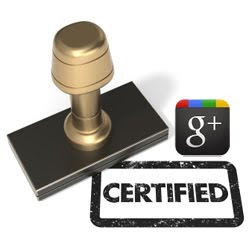What did Delta do wrong? There isn't much of a story. In an attempt to bring visuals into its social media mix, Delta congratulated the United States for its win over Ghana with the Statue of Liberty representing the U.S. and a giraffe representing Ghana. The problem? Giraffes don't live in Ghana.
Immediately following the tweet, Twitter lit up with responses, ranging from those that aimed to poke fun at the company to those expressing true outrage and claims of racism. To compound its self-inflicted injury, Delta also followed the gaffe with a typo in the apology.
"We're sorry for our choice of photo in our precious tweet. Best of luck to all teams playing in the World Cup." — Delta
Delta meant to write "previous" tweet (which it eventually sent out as corrected), but that wasn't the only misfire. Identifying the "offensive" tweet as the "previous tweet" only makes sense if you leave it up. Delta Airlines had removed it.
The social media lesson isn't what you think.
Some public relations professionals said the error is indicative of inexperienced communicators managing social network accounts for big companies. Others said it was an example of Americans being largely ignorant of Africa. And yet others pinned it to a lack of cultural sensitively training.
While any one of those speculations might be true, the better lesson slipped through the cracks. Sometimes a social media crisis is only what we make it. Delta chose to make it serious so it was.
Delta could have made fun of the company instead (which seems more appropriate given that the original mistake was one part ignorance and one part laziness) and followed it up with an image of something more representative of the country. Elephants, for example, do live in Ghana.
Then again, given how many people asked the airlines to avoid the stereotypical safari imagery, they could have chosen any number of other things to do in Ghana instead. They could have even encouraged people to find out what there is to do there with a one-time airfare reduction.
Why not? Delta already flies to the city of Accra, which is the capital of Ghana. There is nothing wrong with promoting a destination. It's what airlines do because every destination becomes their home.
Social media is sometimes akin to the Roman colosseum.
Almost two centuries ago, the Romans used chariot races, arena hunts, mock sea battles, and gladiator contests to entertain its population. The biggest of its arenas is the famed Flavian Amphitheatre, which is estimated to have held between 50,000 and 80,000 spectators.
The games were so successful that they were sometimes held to simply to distract the populace from other problems. It worked too. There was far too much to worry about — who sat where (social standing), what to wear (personal branding), and which gladiators were favored (professional prowess among those who weren't slaves) — to concern oneself with other political problems.
It remained a thriving industry in Rome for almost 300 years. Emperor Honorius had closed down the schools. The contests were finally banned outright when a monk leapt between two gladiators and the indignant crowd stoned him to death. Six years later, the city was sacked by the Visigoths.
Social media can have the same galvanizing effect, easily placing silly cat photos over social justice. There is nothing wrong with that. But then again, it's always smart to consider that social media is what we make it and, in some cases, maybe we're making too much of it like the colosseum as outrage is amplified and the participating crowd wants to extol a pound of flesh.
Sometimes that is a good thing. Sometimes that is not such a good thing. The best rules of thumb are to always check the facts, always consider the source (even friends are fallible), and never pile on the latest crisis just to score social media points for the quip. Save some energy for things that matter.
What do you think? Does social media provide more amplification or distraction in the world today?






















